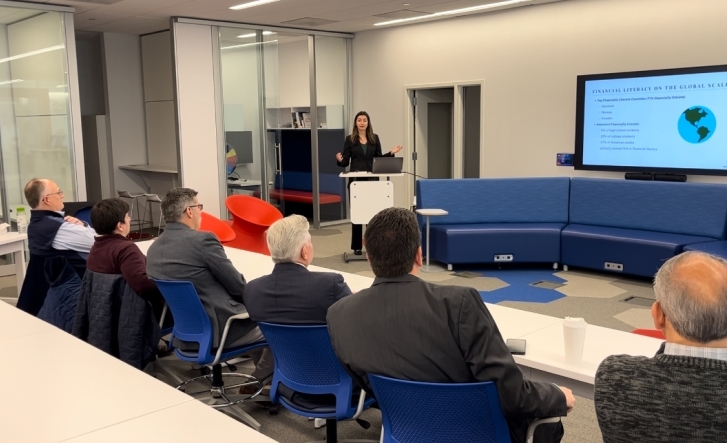Amanda Tamman
Clinical Psychology doctoral student Amanda Tamman is lead author on a recent paper in Biological Psychiatry. The findings were featured in an article in ScienceDaily.

Along with several researchers from Yale University, Amanda published the paper, “Attachment Style Moderates Polygenic Risk for Posttraumatic Stress in United States Military Veterans: Results from the National Health and Resilience in Veterans Study,” which identifies several genetic risk factors that help explain why some veterans are especially susceptible to the debilitating symptoms of post-traumatic stress disorder (PTSD). Even more significantly, the study found that having a secure attachment style neutralized the risk associated with these genetic variables.
Amanda became involved with the research for this study while a graduate student in the Developmental Neuroscience and Psychopathology master’s program at University College London (UCL). The program is offered in collaboration with Yale. While at UCL and Yale, Amanda also published her master’s research on attachment style and PTSD in the World Journal of Biological Psychiatry.
For her dissertation project at St. John’s, Amanda continued her research on PTSD in veterans. She was able to defend her dissertation a year ahead of schedule and published additional research into trauma’s effect on epigenetic aging in the Journal of Geriatric Psychiatry.
Amanda hopes to continue research the psychological and neurobiological imprints of trauma once she completes her Ph.D. Her interest in this area comes from her family history. Amanda, who was born in Switzerland and grew up in Singapore, knew that her grandfather was imprisoned in a Japanese concentration camp during World War II, but he was unable to share his experiences with her.
“I know that he had physical and mental wounds as the result of his experience, but that he couldn’t talk about it,” she said. “I became interested in how trauma can leave an indelible scar that’s also invisible, as well as in what differentiates the people who develop psychopathology after trauma.”
As a student at UCL, Amanda became involved in psychopharmacology research looking at the impact of nitrous oxide gas (laughing gas) on trauma memories, and came to love the research process.
“I didn’t realize how interested I was in research until my undergraduate experiences in the lab,” she said. “I highly recommend actively seeking out experiences in anything that piques your interest as a student.”



